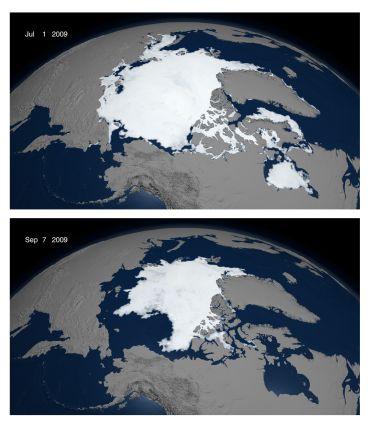 | « Back to article | Print this article |
 It could be either a nuclear war, a meltdown by the ageing Sun or a fatal hit by an asteroid or a black hole -- the reason could be any but the fact is the Earth is facing a disaster sooner than we thought.
It could be either a nuclear war, a meltdown by the ageing Sun or a fatal hit by an asteroid or a black hole -- the reason could be any but the fact is the Earth is facing a disaster sooner than we thought.
Theoretical physicist Stephen Hawking has told the website bigthink.com that the human race will have to start considering options to shift from Earth as the planet is facing grave dangers in the next hundred years.
"I believe that the long-term future of the human race must be in space," Hawking told Big Think.
"It will be difficult enough to avoid disaster on planet Earth in the next hundred years, let alone the next thousand, or million. The human race shouldn't have all its eggs in one basket, or on one planet. Let's hope we can avoid dropping the basket until we have spread the load."
Pointing that the Earth had narrowly escaped destruction during the Cuban Missile Crisis in 1963 and many such catastrophes, Hawking said man's survival today is "a question of touch and go".
The mankind is itself working towards the destruction due to the nuclear weapons race according to the Federation of American Scientists there are about 22,600 nuclear weapons on Earth of which 7,700 are operational.
Another risk faced by the Earth is the Sun, which according to scientists is expanding and growing hotter, could evaporate all the water from the oceans and rivers and leave the planet very hot and uninhabitable in another 7.6 billion years.
"Life on Earth will have disappeared long before 7.6 billion years," University of Sussex astrophysicist Dr Robert Smith told the website.
"Scientists have shown that the Sun's slow expansion will cause the temperature at the surface of the Earth to rise. Oceans will evaporate, and the atmosphere will become laden with water vapor, which (like carbon dioxide) is a very effective greenhouse gas. Eventually, the oceans will boil dry and the water vapor will escape into space. In a billion years from now the Earth will be a very hot, dry and uninhabitable ball."
Hawking says he is an optimist, however the threats faced by Earth could not be denied.
Finally, if not a nuclear war or global warming, Hawking says the Earth always faces the threat of being hit by a supernova, an asteroid, or a black hole.
However, not much can be done about changing our address from Earth -- as the nearest star from Earth -- Proxima Centauri -- is itself 4.2 light years away.
The maximum speed at which man can travel today is 1/1000th speed of light, and hence it could take some 50,000 years to reach the alternate accommodation.
Image: Combination of animation stills showing the depleting Arctic ice sea levels in summer of 2009 | Photograph: NASA